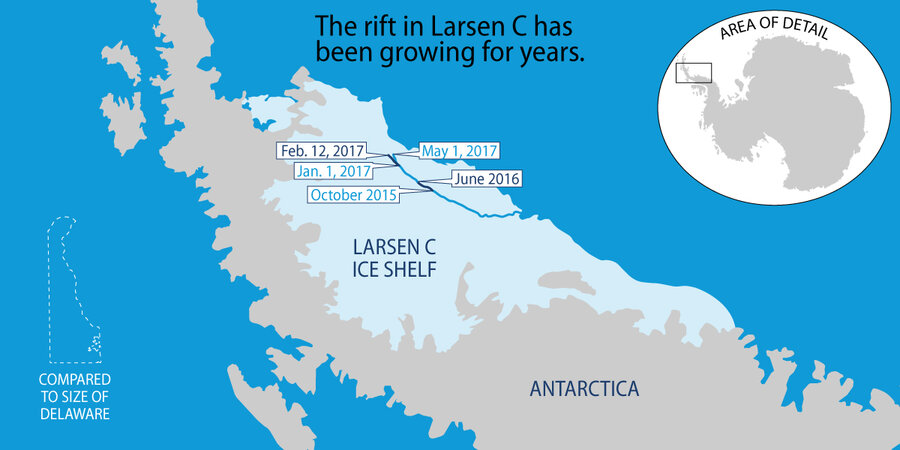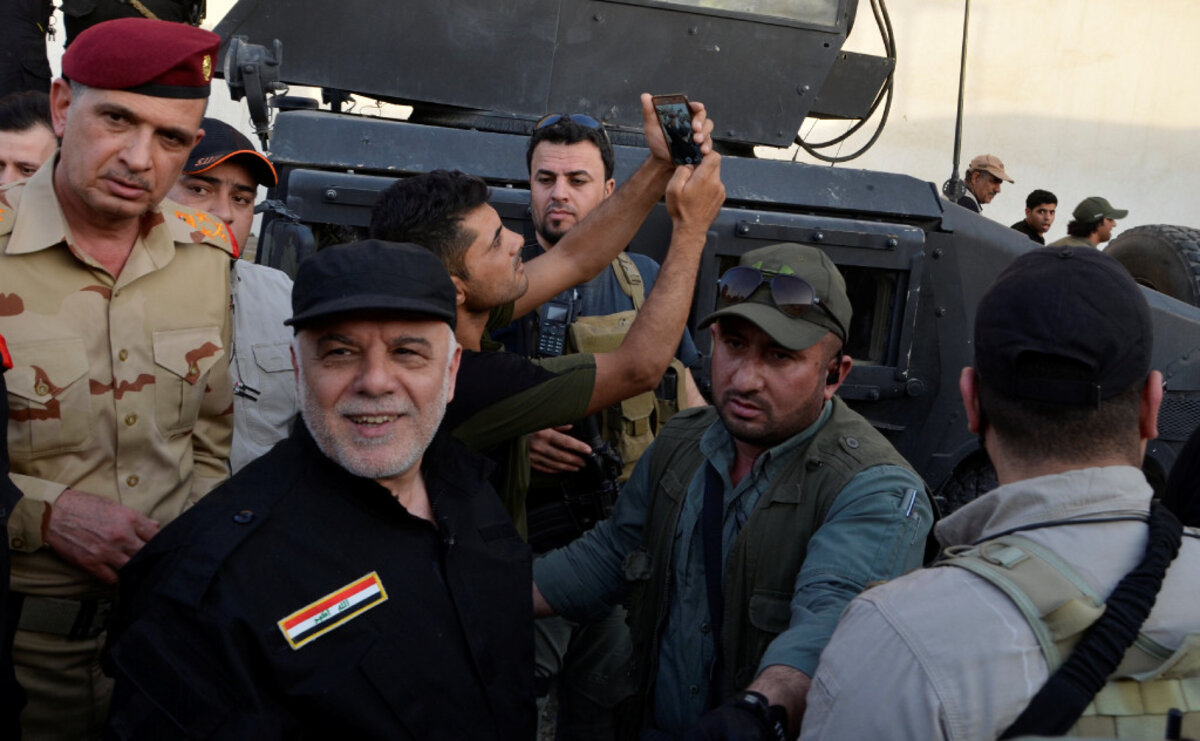Some of President Trump's strongest supporters told two Monitor reporters that sure, they have their limits. But they also explained why, so far, they think Mr. Trump is doing exactly what they elected him to do.

Why is ���Ǵ��� Science in our name?
Our name is about honesty. The Monitor is owned by The First Church of Christ, Scientist, and we’ve always been transparent about that.
The church publishes the Monitor because it sees good journalism as vital to progress in the world. Since 1908, we’ve aimed “to injure no man, but to bless all mankind,” as our founder, Mary Baker Eddy, put it.
Here, you’ll find award-winning journalism not driven by commercial influences – a news organization that takes seriously its mission to uplift the world by seeking solutions and finding reasons for credible hope.
Explore values journalism About usAlready a subscriber? Log in
Already have a subscription? Activate it
Ready for constructive world news?
Join the Monitor community.
SubscribeMonitor Daily Podcast
- Follow us:
In 2012, the Monitor’s Christa Case Bryant stood on the sides of a grass field in Saudi Arabia, and watched as a group of girls played a lively game of soccer – Saudi style, meaning it took place in secret, at night, with no men present.
Yet the following year, the country said girls could take sports at private schools. And yesterday, it announced that public schools are allowed to offer gym class starting next year.
In the United States, it’s hard to remember a world where girls and sports weren’t considered a natural pairing. Perhaps it’s not difficult to understand why Louisa May Alcott rattled cages in 1875 with her tale of an uncle who sees that the only thing wrong with his frail niece are her corsets and lack of exercise. But it’s worth remembering that it wasn’t until 1972 that Title IX required equal opportunity for women in school sports.
The Saudi move is part of Vision 2030, which aims to ease various strictures – including on exercise, which just 13 percent of Saudis engage in weekly. Perhaps the girls will lead the way in boosting that figure.
Already a subscriber? Log in
Help fund Monitor journalism for $11/ month
Monitor journalism changes lives because we open that too-small box that most people think they live in. We believe news can and should expand a sense of identity and possibility beyond narrow conventional expectations.
Our work isn't possible without your support.
Today’s stories
And why we wrote them
( 5 min. read )
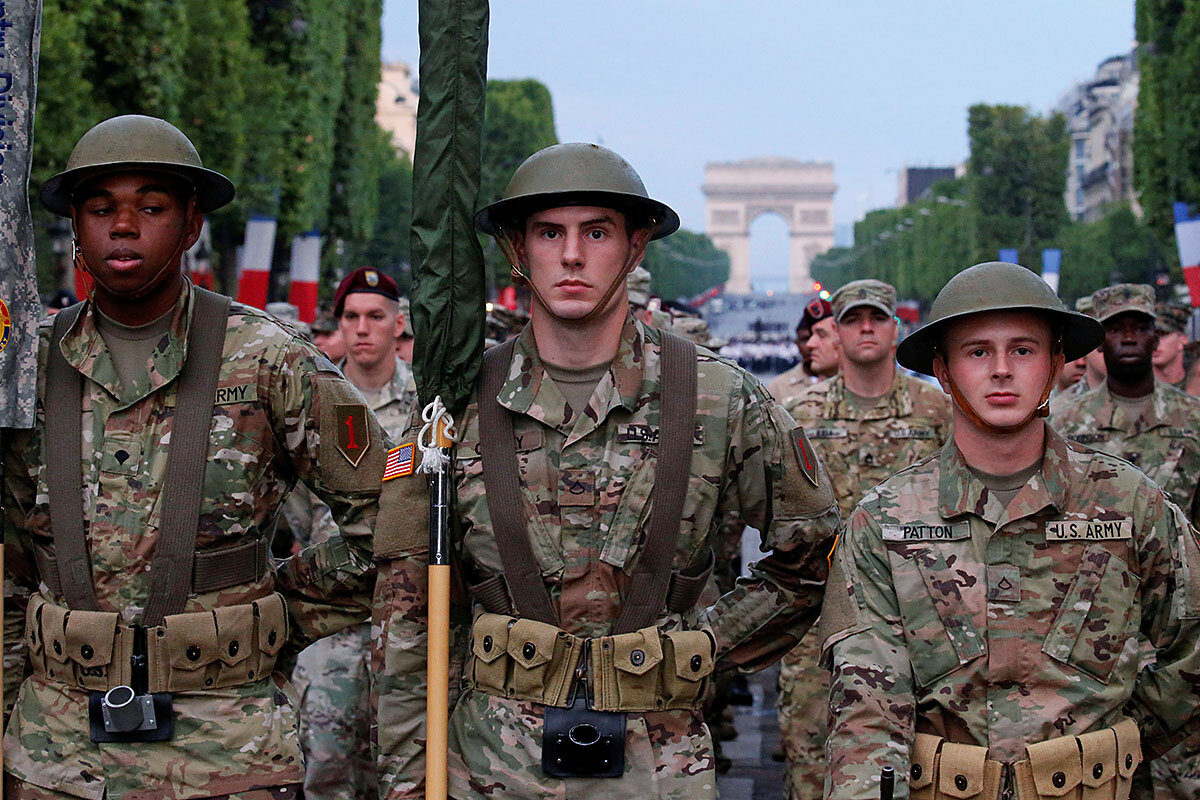
( 5 min. read )
A century later, a somber anniversary highlights the benefits of cooperation – and connection.
( 5 min. read )
A stunning development in Antarctica could prompt people to leap to certain conclusions. The Monitor's Amanda Paulson explains why they shouldn't.
Analysis
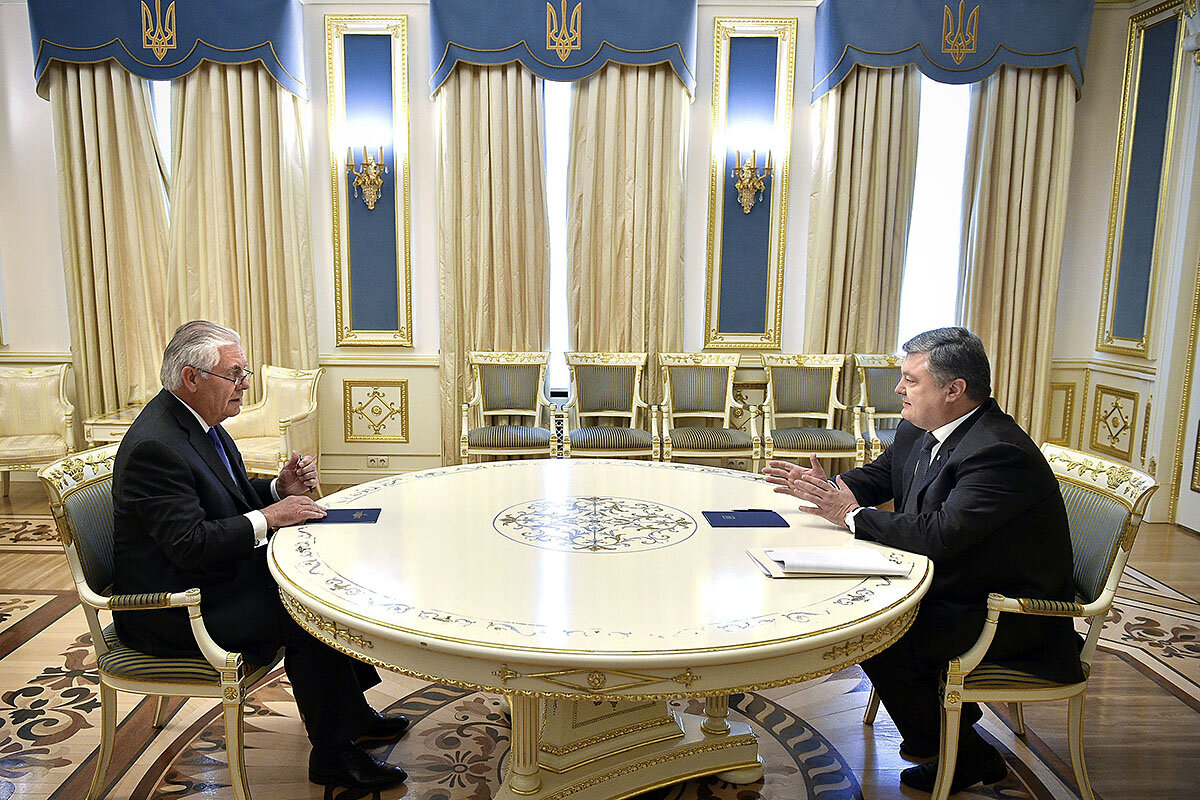
( 3 min. read )
As we noted in our story about the US entry into World War I, many Europeans are worried about a United States they see as drawing inward. But Ukraine got a different message from the US last weekend – one that bolsters its passion for democracy.
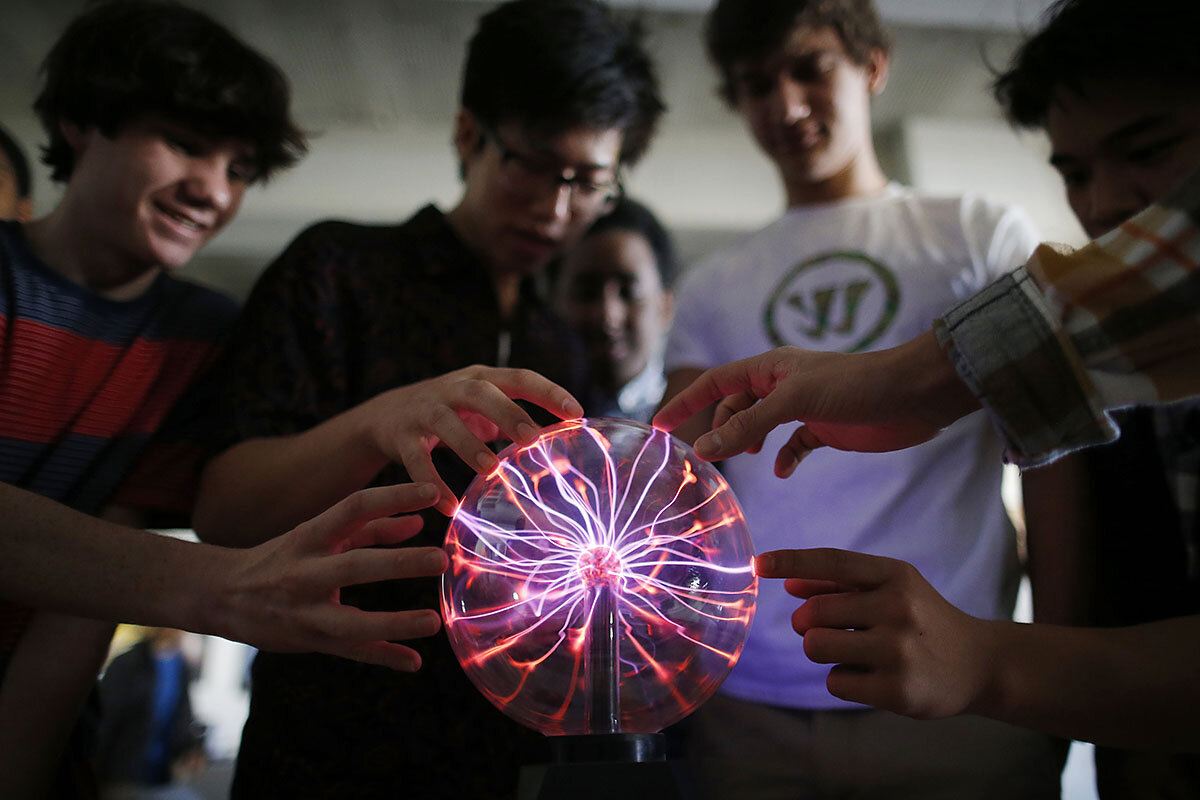
( 6 min. read )
A grasp of physics undergirded any number of developments in the 20th century – from automobiles to computers. That's why educators are scrambling to bolster the ranks of future physicists as we move through the 21st.
The Monitor's View
( 2 min. read )
When the Islamic State (ISIS) took over Iraq’s second-largest city in 2014, one of its first acts was to kill any Mosul resident who merely thought differently. Now compare that murder spree on individual conscience to what has happened since Iraqi forces recaptured the city on July 9.
Civilians are returning, not fleeing or being killed – and they are speaking their mind. Prime Minister Haider al-Abadi promises to create stability for Mosul and extend the political unity among Iraqi leaders in fighting ISIS. Foreign donors have offered reconstruction aid for the city. On July 15, leaders of the country’s minority Sunnis will meet to discuss ways to reconcile with the majority Shiites. And with Mosul’s liberation, more Iraqis are eager for elections in September.
For all its problems – including the need to suppress remaining ISIS insurgents in smaller cities – Iraq has shown an improved focus on national reconciliation after three years of witnessing the alternative of mass slaughter and undemocratic governance in ISIS-run areas. At its height of power, ISIS controlled 40 percent of Iraqi territory and some 10 million people. Now it is on the run in the face of Iraq’s renewed sense of national identity.
Every country emerging from violent conflict has to find a path to reconciliation. Sometimes the need is for forgiveness, justice for victims, or simply land restitution. For Iraqis, the need is to build on its successes since 2015 in overcoming religious divides in politics, curbing corruption, and creating the kind of trust that allows for differences and the rights and freedoms for minorities.
Sunni parliamentary speaker Saleem al-Jubouri has called on the government to adopt a “well-defined approach to social justice.” Mr. Abadi admits that corruption is as harmful as terrorist groups or sectarian distrust. And almost every Iraqi leader speaks of reducing foreign influence, especially by Iran in its support of Shiite militias.
The most remarkable restoration of unity has been in the Iraqi security forces since their defeat by ISIS three years ago. More officers are being promoted by merit than political affiliation. And even though Shiites dominated Iraqi forces, they have generally treated Sunnis well in liberated areas.
Iraq may have finally learned that it cannot afford to ignore its minorities or leave a political vacuum. ISIS, like Al Qaeda before it, was adept at playing on Sunni grievances. While military action was needed to retake Mosul, what is needed even more is the rebuilding and reintegrating of Iraq. In a word, reconciliation.
A ���Ǵ��� Science Perspective
Each weekday, the Monitor includes one clearly labeled religious article offering spiritual insight on contemporary issues, including the news. The publication – in its various forms – is produced for anyone who cares about the progress of the human endeavor around the world and seeks news reported with compassion, intelligence, and an essentially constructive lens. For many, that caring has religious roots. For many, it does not. The Monitor has always embraced both audiences. The Monitor is owned by a church – The First Church of Christ, Scientist, in Boston – whose founder was concerned with both the state of the world and the quality of available news.
( 3 min. read )
More than 100 years ago, Monitor founder Mary Baker Eddy observed, “The question, ‘What is Truth,’ convulses the world” (“Science and Health with Key to the Scriptures,” p. 223). We might say the same is true today. For contributor Rosalie E. Dunbar, a deeper understanding of Truth as God helped her to support healing and resolution when wrongdoing was uncovered in her local government. “Real truth,” she writes, “expresses God’s goodness, lawfulness, and love. Whatever divides, darkens, or confuses – such as hatred or violence – is not part of or justified by Truth.” Prayer from this basis is a reforming influence.
A message of love
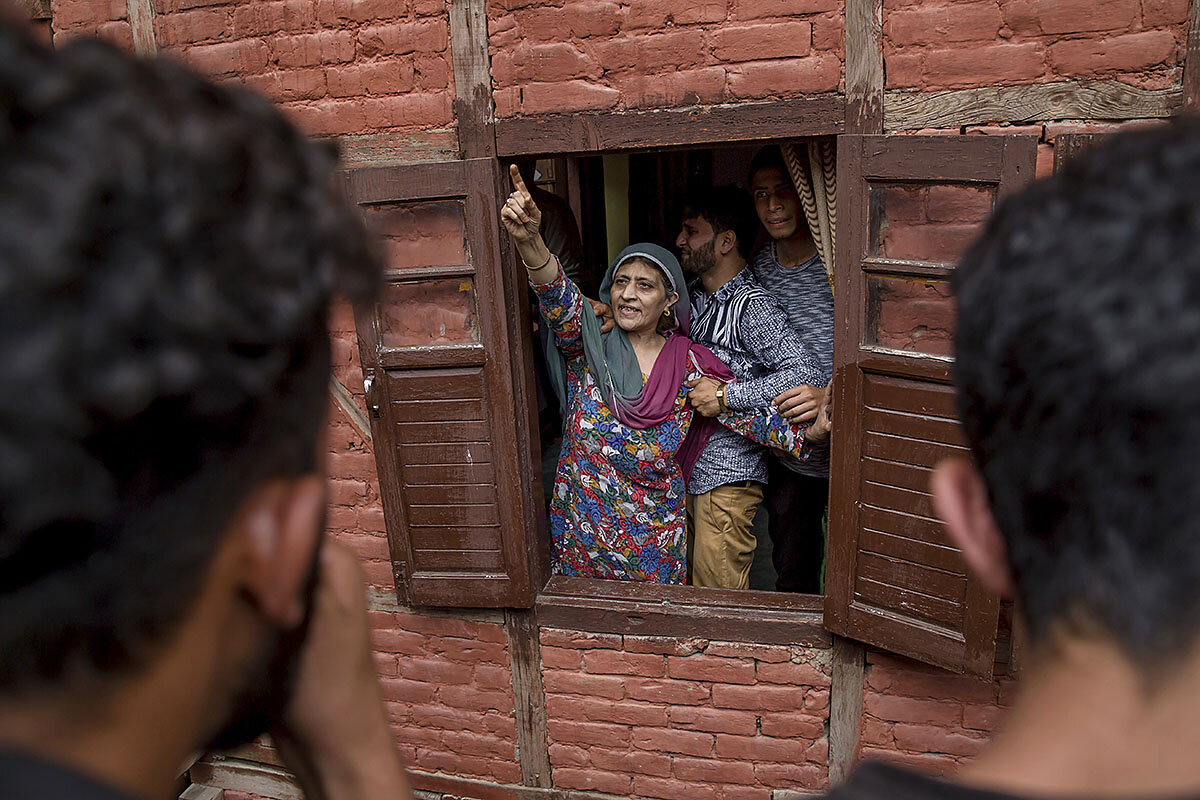
A look ahead
That's a wrap for today. Tomorrow, we'll consider this question: Can newly minted Millennial teachers envision working in an area without fitness clubs and Thai restaurants? The next generation's future may lie in the answer.






